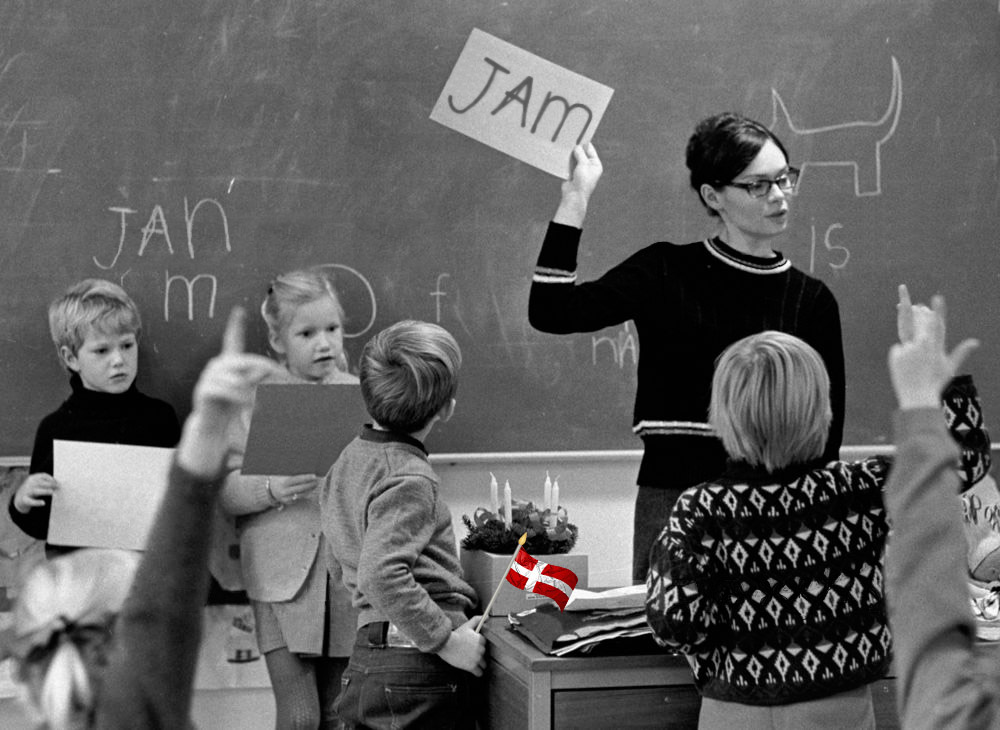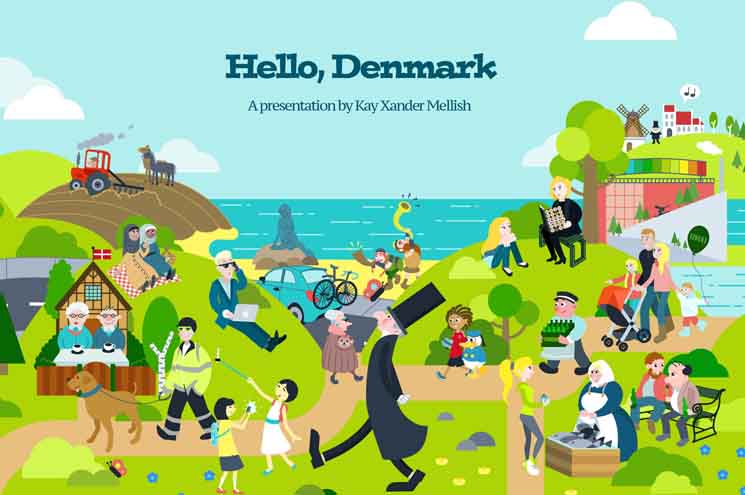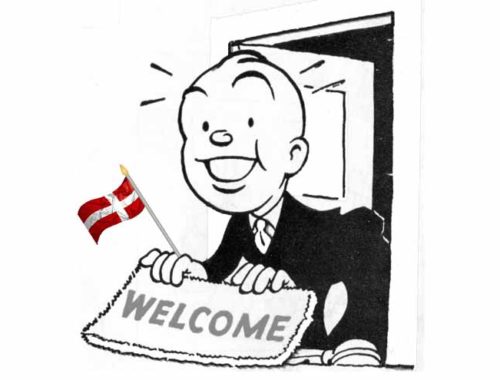I get a lot of mail at the How To Live in Denmark podcast, and some of it is from people who want to move to Denmark, but they’re not sure what to do to make money once they get here. But, I do speak English, they say. Can I make money in Denmark just off of just speaking English?
Generally, no. No you can’t. I mean, I do, but I was an experienced journalist before I got here. But English is not a rare commodity in Denmark.
Danish children start learning English when they’re six years old. And because British and American TV shows and movies and are not dubbed, children are constantly hearing English even earlier. Danish adults often read novels in English, and by the time you get to university, pretty much all the high-level textbooks are in English. There’s just no economic case for translating textbooks into a language that only 5.6 million people speak.
Danes love English
So, English is everywhere in Denmark. And Danes love English. When you come to Denmark, you’ll find that shops and youth programs and rock bands have English names because the Danes think it sounds cool. Danes also like to tuck bits of English into their Danish speech, like ‘Du fik et nyt job? Nice.”
For some Danes, particularly younger Danes, the Danish language is seen as provincial, old-fashioned, kind of like those dusty little porcelain knick-knacks your grandparents keep around the house.
Someone had to give me a form to fill out the other day and she said, “It’s in Danish, unfortunately.’ I mean, you would never have a French civil servant say, “It’s in French, unfortunately.’ Or a British civil servant “Oh, I’m terribly sorry, it’s in English’? Wouldn’t happen.
That said, I wouldn’t say there is no pride in the Danish language. I have a friend who works for Danske Sprognavn. That is an official government department which sets the rules of Danish language usage.
Passion for the Danish comma
And there is a particular passion in Denmark for the Danish comma. I got a recent folder for adult education classes in my mailbox, and there is not one, not two, but three courses for adults on how to use the Danish comma. ‘Come in Comma-form’ it’s called.
Here’s the description for Part 2 – there are three two-hour lessons in part 2 alone – “We’ll go through the comma rules with follow-up exercises. The focus will mostly be on the grammatical comma, but we’ll also have time for the new comma.’ This is an evening course, you guys! People do this in their free time!
So people do care about proper Danish. But unlike other languages, the Danes don’t protect the Danish language from foreign words, which are usually English words. Computer, for example, is just komputer in Danish. Smartphone is just ‘en smartphone.’
The only complaints I ever see about the Anglicization of Danish are in the letters columns of neighborhood newspapers, and they’re usually signed by people with various old-fashioned names, like Knut or Bente. Probably only people who read the letters columns in neighborhood newspapers are elderly people. And me, I guess.
Is it worth it to learn Danish?
So another question I get a lot is, if you already speak English, is it worth learning Danish at all? Yes, it is. Parties are more fun if you can speak Danish. There’s nothing worse than everyone laughing uproariously at some very funny joke, and you having to wait there like a piece of furniture until someone takes the time to explain it to you.
Another good reason to learn Danish is that it’s a great secret language. When you’re out traveling, you can speak to your friends in Danish, and hardly anyone else can understand you.
Of course, this doesn’t always work. I was on a boat ride in Copenhagen a few years ago, and I was speaking American English to my daughter, and the Danish guy behind me said to his buddy, in Danish, ‘They’re Americans, but they’re not fat.’ I turned around and said to him ‘Tak skal du have. Vi taler også dansk.’ He was pretty unhappy after that. I think we spoiled his boat trip.
Something similar happened to a colleague of mine in Chicago. He got off the plane, and he was on an escalator to baggage claim. The lady in front of him on the escalator had a relatively large backside. So he said, in Danish, to his traveling companion, “Looks like we’ve arrived in the U.S., the land of the big butt.’ And the lady turned around, and said to him, in Danish, “This big butt is from Denmark.”
Buy Kay’s books about Denmark on Amazon, Saxo, Google Books, Apple Books, Barnes & Noble Nook, or via our webshop.
Image mashup copyright Kay Xander Mellish 2025
Read also:
How I finally learned Danish: At first, I could only understand the puppets
Is learning to speak Danish worth it?
Painful hugs and Poison Gifts: When the same words mean different things in English and Danish





